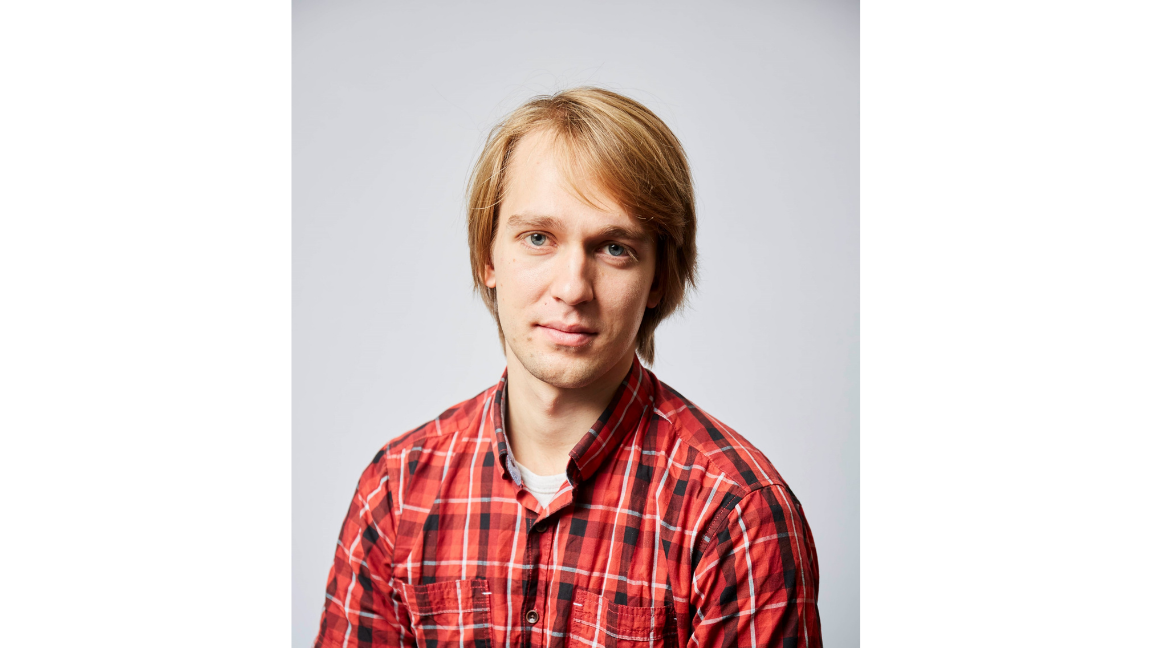About my secondment: Edgars Kelmers
In 2021, Edgars Kelmers (University of Leeds) was awarded a three month secondment with Medacta International, a hip and knee manufacturer based in Switzerland. Here he describes his experience through blog entries before, during and after the placement:
Aims and objectives
My name is Edgars Kelmers and I am currently a third year PhD student at the CDT in Tissue Engineering & Regenerative Medicine. My PhD project consists of designing, manufacturing, and testing of a “smart” knee implant for total knee joint replacements. In our households we already have smart phones, smart cars, even smart kettles, therefore this is a good time to bring in the latest technology also into the operating theatres. The next generation of smart implants will revolutionise surgeries by implementing sensors and electronics inside the implants. The ultimate goal of smart implants is to allow surgeons and patients to track the implant performance and assess patients’ health.
During my PhD research I have been focusing on mechanical design, computational modelling, and risk assessment of smart knee implants. As a design engineer I must consider many aspects of product development. For example, the implant must be practical and easy to use, it also has to be easy to manufacture, safe, sterilizable, comply with medical regulations and the list goes on. As a student, I have limited knowledge, therefore spending time in an orthopaedics manufacturing company would help me to learn the best practice for medical product development
I have chosen to do a secondment at Medacta International in Switzerland. Medacta International is a fast‑growing company and it is the fifth largest hip and knee manufacturer in the world. This company has vast experience in hip, knee, shoulder, spine, and sports medicine surgeries and provides with latest technology solutions, such as, custom 3D-printed cutting guides and augmented reality surgery planning.
This is a great opportunity for me to learn about various joint replacement surgeries and product development. Such knowledge will help with my further PhD research and future career as a medical device design engineer.
Work in progress
I have just completed two weeks out of my four-week internship at Medacta International. It has been great so far. I had a tour around the manufacturing facilities and the engineering departments. The company has amazing facilities. It was great to see how Medacta’s manufacturing techniques combine conventional machining with modern 3D-printing technologies of metal and plastics to produce a vast range of products.
Medacta is based in Switzerland, near the border with Italy, making it a very multicultural place. English is the business language, and it is very practical since engineers like me of a different nationality can easily communicate about the work.
My role so far has been to create Finite Element Analysis computational models. At the University of Leeds I have been using Abaqus software, whilst during my time at Medacta I am learning Ansys and 3Dexperience. This has been an incredible opportunity for me, since companies usually tend to use only one of the named software. This work experience allows me to broaden my skills. In the future I would be able to apply for a job in any engineering company, because now I will have work experience with the three most popular engineering modelling software.
As a student it is always daunting to think about the future, because one can never know what skill set will be required. This internship has shown me that many years ago I made the right choice by studying programming and computational modelling. With my existing knowledge and previous experience, I was able the bring value to the company.
Conclusion
I enjoyed my time at Medacta International. I felt welcomed at the company and I was given the best environment to learn and develop new skills. For a student, particularly in the current COVID times, it is difficult to find an internship opportunity. Therefore, I am very happy that I was given this rare opportunity to work at Medacta International.
The highlight of my secondment was the opportunity to work on Finite Element Analysis computational models for the entire duration of my four-week placement. As the saying goes “practice makes perfect” and luckily for me, I was given a lot of practice. Within my placement I performed a number of different computational models, which will be used to validate product performance and safety.
Besides computational work, I was also keen to learn about other aspects of the medical industry. I was taught about the CE marking process in the EU, I got training on the latest Medical Device Regulations, and I could discuss the general differences between the EU and the USA market. Furthermore, I learned about the workflow for design and development process for any new products. My training was varied, and I could interact with various engineers from the R&D and Regulations department.
This placement has given me a new perspective on my own PhD research. During my placement, I realised that throughout my own PhD research I have developed not one but three highly useful skills: inventing a new medical device, developing new testing methods, and development of FEA models. After three years of relentless studies, I was finally able to realise that my own research could already benefit medical companies and make their daily work easier. I would highly recommend all students gain industry experience at some point in their lives, because it would benefit them both with their academic and professional aspirations.
I would like to say thank you to the Translate MedTech programme, without their support I would have never been able to fly all the way to Switzerland to gain an amazing work experience. I also want to thank all the employees at Medacta International for their help, especially Dario Allegretti and Alessio Beccari, who put a great effort into supervising me.

